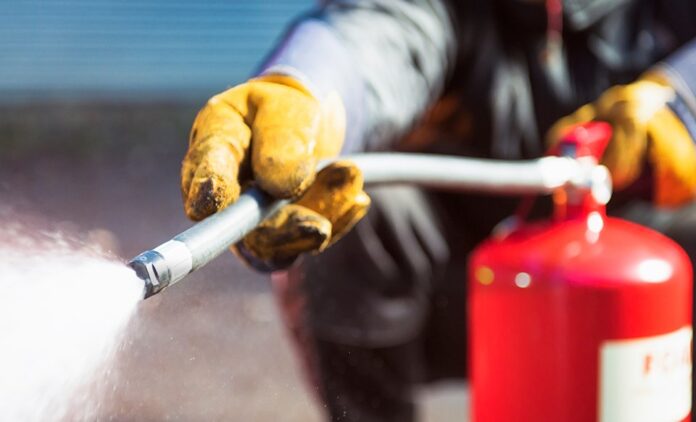 Christmas Trees: Take fire safety precautions when keeping a live tree in the house. Needles on fresh trees should be green and hard to pull back from the branches. Regularly give the tree plenty of water.
Christmas Trees: Take fire safety precautions when keeping a live tree in the house. Needles on fresh trees should be green and hard to pull back from the branches. Regularly give the tree plenty of water.- Cooking Calamities: While November is the top month for grease and cooking-related fires, December is a close second. Unattended cooking remains one of the top causes of home fires. There are a lot of distractions and all it takes is a brief moment for a cooking fire to get out of control. Keep an all-purpose or Class ABC rated fire extinguisher nearby to get a kitchen fire under control.
- Space heaters: Home heating equipment is second to cooking fires for causing home structure fires. More than half of home heating fires occur during December, January and February. Avoid setting up a space heater too close to curtains, furniture, or holiday decorations. Remember to keep at least three feet of clear space around it and set it up on the floor unless it is designed for other use.
- Children Playing with Fire: The number of fires and deaths caused by children playing with fire goes up significantly during the holidays. Never leave children unsupervised with ignition materials such as matches or lighters.
- Burn Wood in the Fireplace: Do not burn trash, cardboard boxes or Christmas trees in the fireplace. These items burn unevenly and may cause a dangerous flash fire.
- Dirty Chimney: Most chimney fires are caused by the buildup of creosote, a highly combustible by-product of burning wood. To protect your chimney from creosote buildup, have it inspected and cleaned annually.
- Dirty Fireplace: When cleaning your fireplace, put embers in a metal container and set them outside to cool for 24 hours before disposal.
- Caution with Candles: Christmas Day is the peak day of the year for candle fires. Make sure candles are in stable holders and place them where they cannot be easily knocked down. Never leave the house with candles burning.
- Holiday Lights: Inspect holiday lights each year for frayed wires, bare spots or broken sockets before putting them up. Remember to turn off holiday lights before leaving the home or going to bed.
- Electrical Outlets: Don’t overload your electrical outlets with too many lights or decorations.
- Electrical Cords: To reduce the chance of overheating, electric cords should never be bundled together or run under rugs or carpet.
- Counterfeit Electronics: Christmas lights are the perfect product for counterfeiting – high volume and low manufacturing cost. Look for CSA or UL certification marks that indicate the product was tested and met the product safety standards.
Additional Tips
- How to Holiday Safely Graphic: https://newsroom.statefarm.com/how-to-holiday-safely/
- Take Steps to Protect Your Home During the Holidays: https://www.statefarm.com/simple-insights/safety/take-steps-to-protect-your-home-during-the-holidays
- Tips for a Safer Holiday Season: https://www.statefarm.com/simple-insights/residence/tips-for-a-safer-holiday-season


